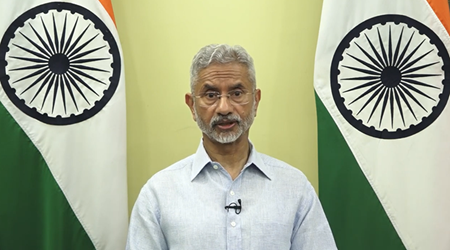
World Prematurity Day: 15 million preterm born babies worldwide need a strong voice
Latest
 |
| In Viet Nam, it is estimated that 17,000 children die within their first 28 days and 103,500 babies are born preterm annually. (Photo: UNICEF) |
Preterm birth is the leading cause of death in children under the age of five; each year, about 15 million babies worldwide are born prematurely, that is about 1 in 10 children.
In Viet Nam, it is estimated that 17,000 children die within their first 28 days and 103,500 babies are born preterm annually.
The global COVID-19 pandemic forced neonatal units worldwide to adopt strict safety measures that unfortunately often separated parents from their preterm babies in the neonatal unit, with detrimental consequences for babies and parents alike.
In addition to the health challenges experienced by the newborns, separation of parents from their babies contributes to severe and long-term health and developmental issues in newborns and also affects parents’ mental health in lasting ways.
With the theme “Zero Separation. Act now! Keep parents and babies born too soon together”, this year’s World Prematurity Day is an opportunity to advocate for every parent’s right to have unrestricted access to their babies in hospital, no matter where and when.
Even without the additional risks of a global pandemic, preterm babies are among the most vulnerable patients worldwide and, as studies have shown time and again, they need their parents by their side. Healthcare systems are encouraged to balance the needs of babies born too soon, too small, or too sick and their families with the requirements to keep hospitals running and the staff safe during the pandemic.
In Viet Nam, UNICEF continues to work with the Ministry of Health to support and scale-up newborn lifesaving interventions throughout the country. This work focuses in particular on the rural and mountainous provinces in the North and Central Highlands, where a number of ethnic populations live and where worryingly high neonatal mortality rates persist.
“Cost-effective interventions to save newborns include immediate skin-to-skin contact and early initiation of breastfeeding for newborns. Skin-to-skin contact as early after birth and as continuously as possible has positive and protective effects, such as the regulation of cardiac and respiratory rates, the prevention of sepsis (severe infection), hypothermia (low body temperature) and hypoglycemia (low blood sugar), and reduced hospital readmission.
Meanwhile, early and exclusive breastfeeding and providing mother’s own milk have a positive impact on the baby’s short- and long-term physiological and neurodevelopmental outcomes. It is equally important to ensure that babies born too soon, too small or too sick, if needed, have equitable and quick access to higher levels of hospital care, irrespective of where they are born” said Maharajan Muthu, Chief of Child Survival and Development Programme of UNICEF Viet Nam.
As in previous years, World Prematurity Day activities are being carried out in about 100 countries this week to raise awareness and spur action to prevent preterm birth where possible, improve healthcare systems, and save babies’ lives.
In Viet Nam, a special event will be organized in Da Nang to mark World Prematurity Day by the Department of Maternal and Child Health of the Ministry of Health, United Nations Children's Fund (UNICEF), and Da Nang Hospital for Women and Children, to honor and recognize the contributions of health workers in newborn care as well as to raise awareness of the challenges surrounding preterm birth and ensure that people are informed about the risks and consequences.
The event is a part of Kimberly-Clark and UNICEF’s project to support the scale-up by the Ministry of Health of newborn care interventions in order to save the lives of many more newborns in Viet Nam.
On this occasion, the Department of Maternal and Child Health, Ministry of Health affirms that newborns care and neonatal mortality reduction are among the important goals not only for the health sector but also for Viet Nam as the country has committed to achieving the Sustainable Development Goals.
























